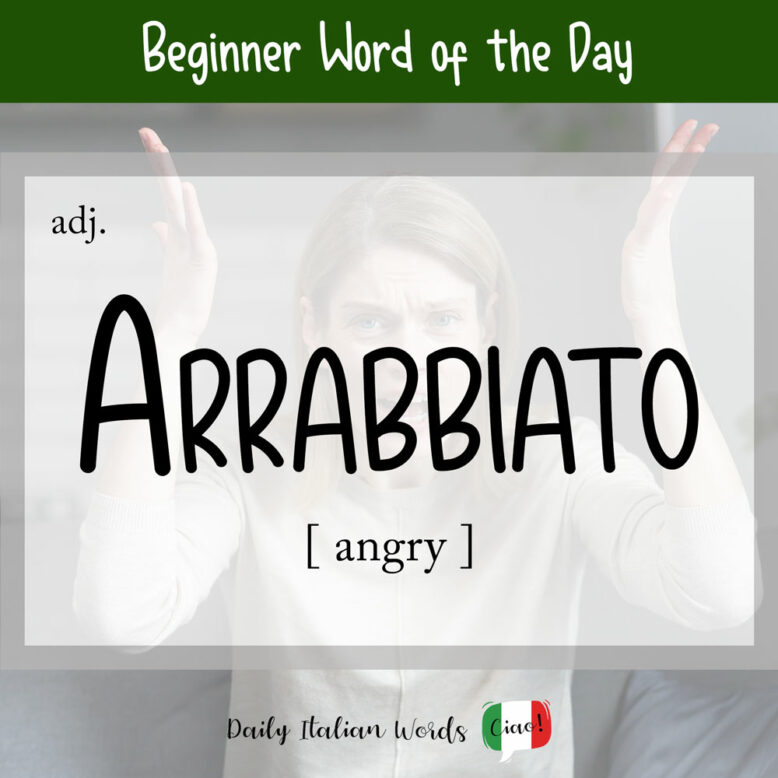The word for angry in Italian is arrabbiato. It is also the past participle of the verbs arrabbiarsi (to get angry) and far(e) arrabbiare (to anger).

Because it is an adjective, the ending of arrabbiato changes depending on whether you are talking about a solitary male (arrabbiato), a solitary female (arrabbiata), a group of males or a mixed group (arrabbiati) or a group of females (arrabbiate).
Mio papà è molto arrabbiato con mio fratello perché è tornato a casa tardi.
My dad is angry with my brother because he came home late.

If you’re already familiar with arrabbiato, here are some other more colourful ways of saying angry in Italian:
- incavolato = a common expression derived from the word cavolo (cabbage)
- incazzato = a vulgar expression derived from the word cazzo (penis)
- furioso / infuriato = furious
- furibondo = extremely angry
Spero che tu non sia ancora arrabbiato con me.
I hope you aren’t still angry with me.

Arrabbiato can also be used to describe someone with extreme or fanatical feelings about something, or someone who carries out an activity with extreme perseverance or tenacity (e.g. un fumatore arrabbiato = a rabid smoker).
Interestingly arrabbiato may also follow other adjectives as an intensifier. For example, salato arrabbiato means extremely salty (literally “angry salty”) and musica arrabbiata means loud and lively music (literally “angry music”).
In culinary terms, arrabbiato – or more specifically the expression all’arrabbiata – denotes a hot and spicy dish that has been seasoned with chilli peppers such as, for example, pollo all’arrabbiata (spicy chicken) or penne all’arrabbiata (spicy penne pasta). All’arrabbiata may also refer to an action that is performed rapidly and furiously (e.g. lavorare all’arrabbiata = to work furiously).

Heather Broster is a graduate with honours in linguistics from the University of Western Ontario. She is an aspiring polyglot, proficient in English and Italian, as well as Japanese, Welsh, and French to varying degrees of fluency. Originally from Toronto, Heather has resided in various countries, notably Italy for a period of six years. Her primary focus lies in the fields of language acquisition, education, and bilingual instruction.


